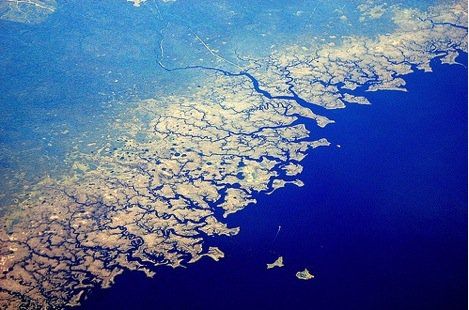
Ecotheories Colloquium: “Waves and Edges: Ecologies of Displacement”
Brown University Ada Smailbegovic
November 14, 2022 · 4:30 pm—6:00 pm · 111 East Pyne
Department of English

This talk theorizes the edge between the land and the sea in Marianne Moore and Etel Adnan’s poetry. For these poets, the edge is constituted as an array of fluctuating temporal rhythms created by living organisms and dynamic abiotic elements, such as changing tides and the rocky or sandy substrates that make up the geological formation of the coastline. In her poem “Sea,” Adnan writes about how “this erratic edge called restless tide changes its geometry, and with urgent, terrifying power, covers the flat rocky formations” (7). The edge also appears in several of Moore’s poems, including “The Fish,” which depicts the intertidal zone populated by injured “crow-blue mussel-shells,” “ink- / bespattered jelly fish,” and sea-stars, which resemble “pink / rice-grains” (41-42). One of Moore’s most famous poems, “An Octopus,” in turn, portrays a transposition between an aquatic and a terrestrial environment by embedding the alpine landscape of Mt. Rainier into the representational space created by the “mimetic” body of an octopus. In the midst of this transposition, marine and terrestrial ecosystems come to be intermixed and superimposed. This chapter reads such moments as experiments in the textured edges of displacement. In these instances of encounter, organisms find themselves in unlikely configurations of space and time, akin to those arising as a consequence of geophysical and ecological redistributions associated with the effects of climate change. This contemplation of displacement is situated within a developing book project, which draws on Sara Ahmed’s concept of “migrant orientation” to consider how alternate spatial and temporal geometries produced through histories of migration and displacement can reorient our understandings of temporalities and spatialities associated with ecological change.
A speaker series co-sponsored by: the English Department’s Contemporary Poetry Colloquium, the High Meadows Environmental Institute, the Environmental Media Lab, the Bain-Swiggett Poetry Fund, the Effron Center for the Study of America, the Interdisciplinary Doctoral Program in the Humanities, and the University Center for Human Values















